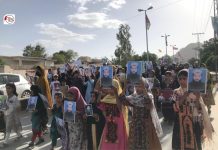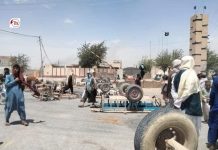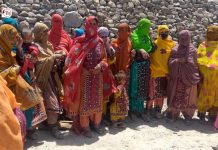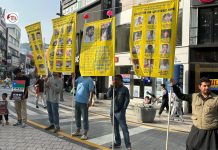Lebanon is mourning as a massive explosion in Beirut rocked the city on Tuesday, killing at least 100, wounding thousands, with many yet to be found under the fallen debris of buildings. 250,000 have been rendered homeless in the aftermath of the explosion.
The explosion incinerated every building and vehicle in its immediate vicinity, strewed containers several meters, upturned cars 2kms away, shattered windows and unhinged doors many miles away, and sent a blast so powerful that it was heard across the country.
Helicopters hovering above the city and trying to extinguish the fire show a devastated area expanding hundreds of meters from the epicentre of the explosion.
What happened?
Tuesday’s blast at a large warehouse containing tons of explosive material was the most powerful in years in Lebanon. Initially, the cause of the explosion was not clear. The head of Lebanon’s General Security, General Abbas Ibrahim, attributed the explosion to explosive material confiscated many years ago and stored in a warehouse in the port. The Lebanese health ministry, in a contradictory statement, said that the explosion was caused by a ship carrying fireworks docking at the port.
Lebanese President Michel Aoun said that the explosion was caused by 2755 tons of Ammonium Nitrate, a highly inflammable chemical compound used in fertilizers and bombs, which was stored in the warehouse for six years without safety measures, saying it was “unacceptable”, and vowed that those responsible would receive “harshest punishments.”
It is still unclear what caused that blaze that ultimately inflamed the ammonium nitrate and morphed into a devastating explosion. A security source and the media said that it was started by welding work being carried out inside the warehouse.
Situation in Lebanon
Prime Minister Hassan Diab promised that there would be accountability for the blast at the “dangerous house”, adding that “those responsible will pay the price.”
Aoun called an emergency cabinet meeting on Wednesday suggesting that a state of emergency should be declared in Beirut. Lebanon’s Supreme Defense Council declared Beirut a disaster-stricken city, enforced a two-week state of emergency and handed over the capital to the military. Aoun has also decided to release 100bn Lebanese pounds for emergency allocations from the 2020 budget.
The U.S. embassy in Beirut warned the residents about a report that toxic gas was released with the explosion, urging them to wear masks or remain indoors. Ammonium Nitrate, the chemical compound behind the explosion, releases Ammonia Gas and Nitrogen Oxides when it comes into contact with fire.
Casualties and damages
George Kettani, the head of Lebanon’s Red Cross, said that at least 100 people were killed. “We are still sweeping the area. There could still be victims. I hope not,” he said.”
Other sources say that thousands were injured and hundreds of other victims were yet to recovered from the rubble. The hospitals were already dealing with the Covid-19 patients, and the sudden arrival of thousands of survivors of the explosion has overwhelmed them. At St Joseph’s hospital 2km from the site of the explosion, a doctor said that the hospital couldn’t provide treatment to the wounded, as it had been destroyed by the blast.
Kettani told a broadcaster that Red Cross was coordinating with the Lebanese health ministry to set up morgues because the hospitals were overwhelmed.
Marwan Abboud, the governor of Beirut, told media that approximately 250,000 were homeless as a result of the explosion.
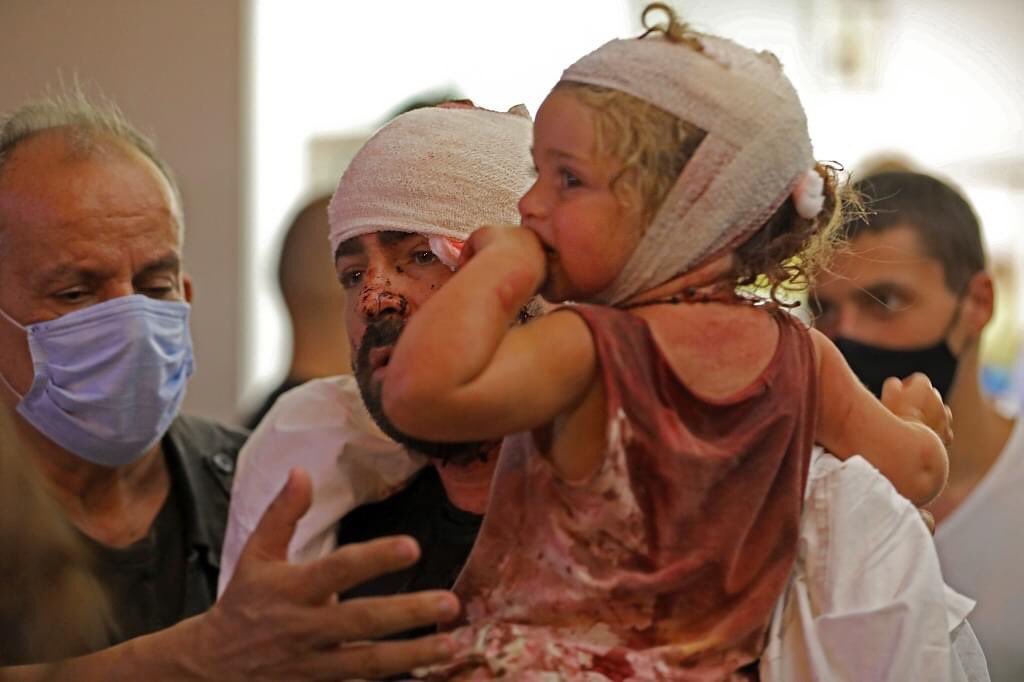
Turmoil in Lebanon
The explosion came three days before the U.N.-backed court is due to deliver its verdict on the Hezbollah suspects in the killing of the ex-Prime Minister Rafik al-Hariri. Hariri and 21 others were also killed on the same waterfront, some 2km from the port, in a bombing in 2005.
Lebanon is already in a political turmoil. In recent days, protests have surfaced in many cities across the country over the government’s mishandling of the Covid-induced economic crisis, the worst in the country since the 1975.
Israel, who has fought wars with Lebanon and recently thwarted the infiltration of Hezbollah militants in the Israeli soil, said that it had no involvement in the explosion. It offered humanitarian and medical assistance to Lebanon.
Iran, the main backer of Hezbollah, offered support to Lebanon. Saudi Arabia, the leading Sunni power and Iran’s archrival, also offered assistance.
In a White House briefing, the U.S. President Donald Trump said that the explosion “looks like a terrible attack”, but two officials from his administration said that the first-hand information contradicts Trump’s assumption.
Governments worldwide have offered support, including U.S, U.K, Australia, France and Canada.














